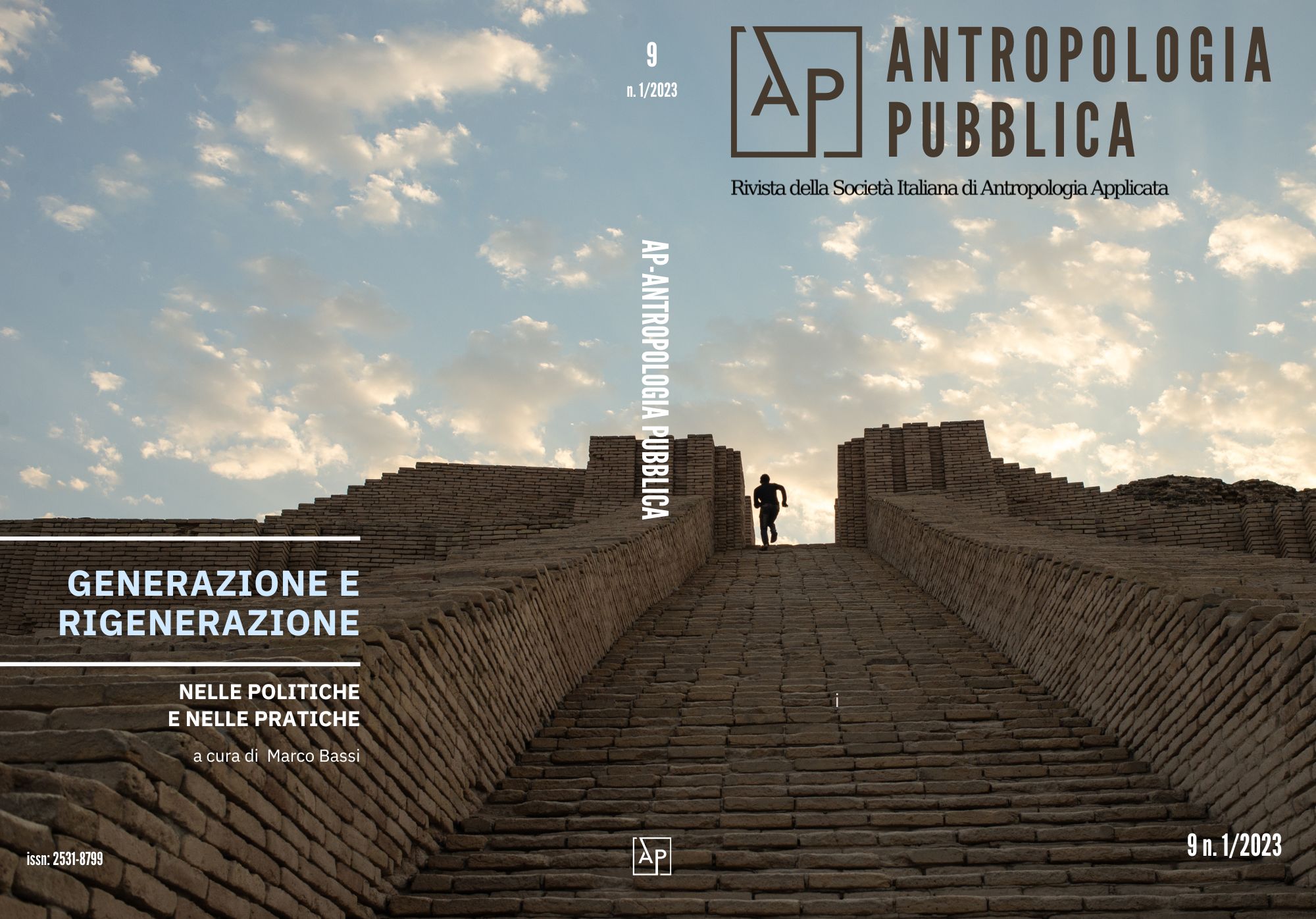Generation, regeneration and social transformation: linking theory, policy and engagement
DOI:
https://doi.org/10.1473/anpub.v9i1.290Parole chiave:
Generation; Regeneration; Siaa; Gadaa; Rhetoric cultureAbstract
The idea of working on ‘generation’ and ‘regeneration’ in the context of policy arose when the European Union launched the Next Generation EU recovery plan as a way out of COVID crisis, thus resorting to a concept that East African societies based on generational class systems have been using as reference of their main main institutional set-up. Inspired by the Rhetoric culture school, attention shifted to the cognitive structures and correlations that ‘generation’ and ‘regeneration’ evocate, for appropriate and constructive use in policy and action. This special issue collects applied ethnographic studies on the implementation of EU programmes, long-term ethnography of Candomblè religion, a study on the role of the gadaa generational class systems of the Oromo (Ethiopia), ethnography on car theft in Kanaky (New Caledonia), a collaborative ethnography of the dônga stick duelling practiced by the Mursi (Ethiopia), and a long-term ethnographic study of divination in Hamar (Ethiopia). The comparative review of the use of ‘generation’ and ‘regeneration’ in these ethnographies shows that both represent the link between past and future, providing condensed expressions of continuity of key values. Generation evokes the reproduction of society, the process of knowledge transfer, education and cultural transmission, as linked to a specific identity group or polity. Regeneration is instead activated in response to some sort of unpredictable disturbing element that breaks the normal flow of events, either as an ongoing necessity or on occasion of crises. As such, regeneration allows the idea of change and social transformation.



